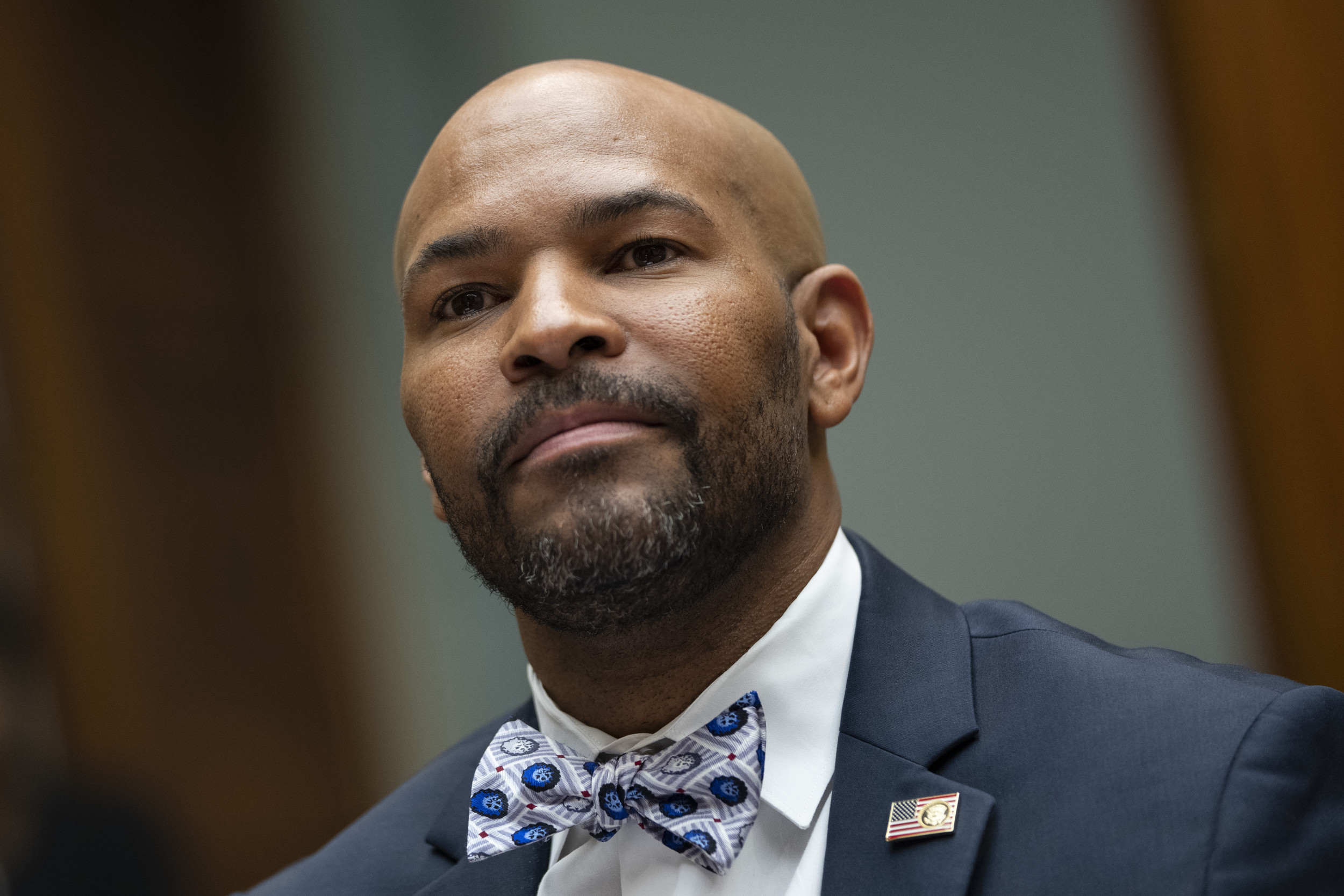Dr. Jerome Adams, who served as U.S. surgeon general during newly elected President Donald Trump’s first term, warned Saturday that the new administration needs a “strong infectious disease response plan” as cases of three public health threats rise.
Adams, who served on then-President Trump’s coronavirus task force in 2020, noted in a Saturday post on X, formerly Twitter, an increase in cases of whooping cough, measles and H5N1, also known as bird flu, in the country.
“The new administration better have a strong infectious disease response plan – and better ensure that public health and vaccine confidence remain high. Otherwise, this time they will be distracted by outbreaks for four years instead of one,” he wrote, referring to the COVID-19 crisis. -19 pandemic.
Newsweek contacted Adams via email on Saturday for comment.
Adams’ comments come days after Trump targeted vaccine skeptic Robert F. Kennedy Jr. had nominated to head the U.S. Health and Human Services Department (HHS), which directs America’s public health agencies.
Kennedy Jr. is on leave as chairman of the anti-vaccine group Children’s Health Defense and has long repeated the debunked claim that childhood vaccines cause autism. He also advocated against COVID-19 vaccines during the pandemic. Despite insisting he is not anti-vax and claiming he has never told the public not to get vaccinated, he is an outspoken opponent of vaccinations.
Newsweek also contacted Kennedy Jr.’s press team by email on Saturday. and Trump’s team for comment.
The U.S. Centers for Disease Control and Prevention (CDC), like Adams, recommends vaccinations to prevent the spread of disease at the population level.
In response to Adams’s
Adams responded: “No medical treatment is 100% effective – and I’m sorry your grandson was one of the exceptions. But let’s not confuse anecdotes with population-level evidence,” reaffirming his support for vaccinations.

Drew Angerer/Getty Images
Whooping cough
The number of cases of whooping cough, or whooping cough, is “five times higher” this year, Adams said Saturday of the highly contagious respiratory disease. There are currently approximately 25,216 cases reported as of November 16, compared to 5,404 reported in all of 2023.
The CDC noted that the shift is a “return to pre-pandemic.” [COVID-19] patterns.” The spread of many infectious diseases decreased during the pandemic, largely due to social distancing.
Newborns, infants, and people with pre-existing health problems are at greatest risk for severe symptoms. The bacteria spread through the air and people can remain contagious for weeks. The CDC recommends DTaP and Tdap vaccinations, depending on a person’s age, as a preventative measure.
According to recent CDC data, the number of children who received all four recommended doses of the DTaP vaccine fell by 2.5 percentage points between 2018 and 2021.
Measles
Adams also warned about measles, noting that there have been “100,000 measles deaths worldwide this year – mostly among children.”
As of Nov. 21, there have been 280 cases of measles in the U.S. this year, with 16 reported outbreaks, a fourfold increase from the four cases reported in 2023, according to the CDC. About 40 percent of cases resulted in hospitalization.
The CDC reported that 89 percent of cases in the U.S. were individuals who had not been vaccinated or their vaccination status was unknown. People with two doses of Measles, Mumps and Rubella (MMR) made up only 4 percent of those affected. According to CDC data, the number of children who received at least one dose of the MMR vaccine fell by 1.7 percentage points from 2018 to 2021.
Before the vaccine, the CDC reported that “an estimated 48,000 people were hospitalized and 400 to 500 people died each year in the United States.” It is also noted that two doses are 97 percent effective in prevention, although there are breakthrough infections.
The contagious, airborne disease can cause serious skin rashes.
Bird flu
Adams then turned to bird flu, writing in his X-post on Saturday: “H5N1 is steaming toward a pandemic. Egg prices are skyrocketing.” Bird flu spreads among wild birds to other poultry and animals, including dairy cows and humans.
The virus is more common in animals and currently affects 109 million poultry and 616 dairy herds in the US, according to the CDC on November 22. Egg prices have risen due to the impact of bird flu on the supply chain.
Infection in humans most commonly occurs after direct contact with animals, for example after touching saliva, mucus or feces of sick or dead birds.
A person can become infected if the virus gets into the eyes, nose or mouth, or is inhaled, through droplets or dust in the air, or through contaminated surfaces.
So far, the CDC labels it a “low” public health risk, with a total of 55 confirmed cases this year, the majority of which are transmitted through livestock in California.
Cases have also been reported in Washington, Colorado, Michigan, Missouri, Oregon and Texas.
Trump’s choice for a surgeon general
On Friday, Trump mentioned Dr. Janette Nesheiwat as his choice for U.S. Surgeon General. Nesheiwat is a practicing physician who has been on the front lines of the COVID-19 pandemic, treating thousands of Americans. Nesheiwat is also a medical contributor to Fox News and is medical director at CityMD.
Trump praised her “expertise and leadership,” citing his partnership with her as part of Operation Warp Speed, the U.S. plan to develop and deliver the COVID-19 vaccine — something Trump shied away from in his 2024 campaign to discuss it after repeatedly taking credit after leaving the White House in 2021.
Nesheiwat’s sister, Julia Nesheiwat, had served as a homeland security adviser during the previous Trump administration.
Update 11/23/24, 4:50 PM ET: This article has been updated with additional information.
